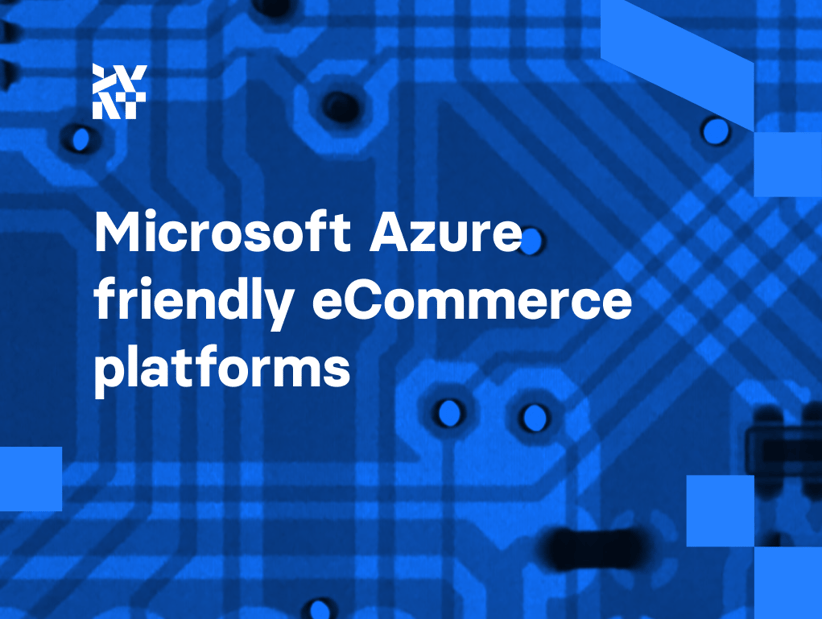In my recent blog post, I’ve shared some insights on custom-built eCommerce platforms based on Microsoft Azure. I’ve received quite a few questions from people willing to deploy their sites to Azure, but, on the other hand, want to use a more complete suite of tools. In this new blog post, I’ll try to showcase some of the most popular eCommerce platforms dedicated/optimized to Microsoft’s stack.
Azure supports virtually any eCommerce platform
One may argue that, man, they support any software that could be hosted on Azure Compute or via Kubernetes. Both support Windows Core, Linux, and other operating systems. Of course, that’s totally true. It’s fine to go with Magento, Saleor, or Shopware 6. However, today, I’m just going to focus on the solutions dedicated to and natively supporting this particular cloud provider with all its native services and specifics.
commercetools
Some professional cloud-native solutions like commercetools are well supported on Azure. It’s offered within the official marketplace. The platform is one of the founding members of MACH Alliance with fantastic extensibility features.
We’ve published an ebook on composable eCommerce reference architecture based on commercetools recently. Make sure you have a copy and check out all the services that can be composed with the platform to give the users the best possible experience.
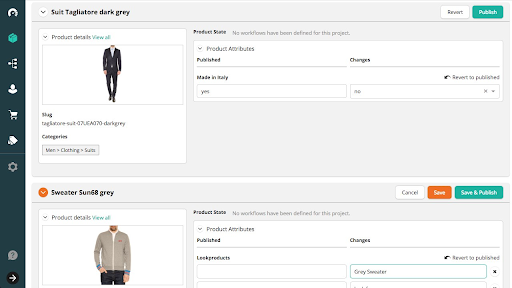
SAP CX
SAP CX, formerly known as SAP Hybris, is actually based fully on Microsoft Azure, and with the Spartacus front end, it fully supports the cloud-native headless architecture.
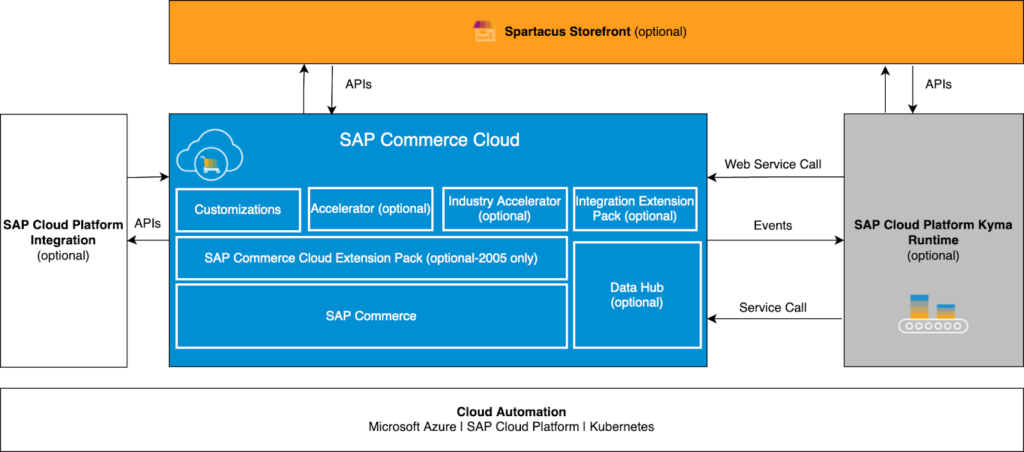
Source: https://www.sap.com/cxworks/article/435954690/sap_commerce_cloud_architecture
With the growing list of customers deploying Spartacus to production each month, it’s potentially the quickest and easiest way to deploy large-scale eCommerce on Azure. Spartacus is open source.
That being said, you can use all the resources and Azure services together with the Spartacus storefront deployed over the SAP CX cloud. It can be hosted on Azure, too.
One of the interesting case studies for SAP CX is the B2B site, Mirka.se. I had a fantastic conversation with Mirka’s Chief Architect on the architecture and the reasons why they went with Azure and SAP CX.
Virto Commerce
This is a dedicated B2B platform based on Microsoft ASP.NET. With a client list that includes Bosch, Heineken, Volvo, and Lavazza. it’s becoming a true B2B leader for headless, cloud-native eCommerce platforms.

Virto offers full access to it’s source code over Github. This is an important feature given the business safety and the customization options, especially within the B2B space with so many different business models .
Virto is a headless platform that, by default, offers its own ASP.NET based front end and the Vue Storefront SPA front end based on Vue.js. Having said that, it’s fairly easy to use any buy vs. build strategy of your company. Focus on building the actual USP and the value for the customer while using the production-grade, back-end services provided out of the box by the platform.
The most popular business cases for the Virto platform are the B2B platform, vendor portal, and loyalty portal.
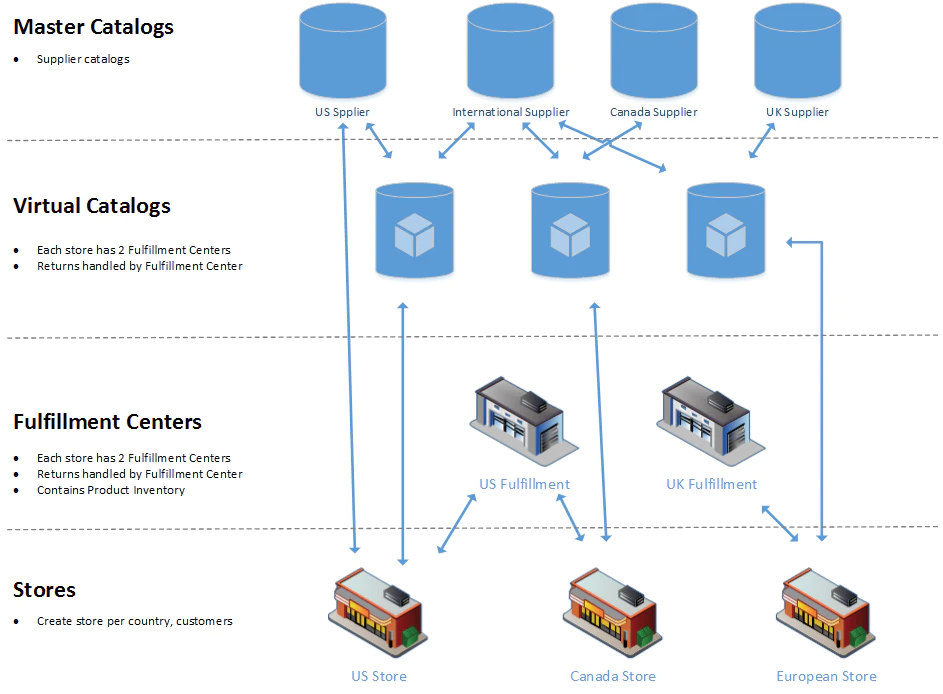
Different company and fulfillment structures are fully supported by Virto Commerce. Source: https://www.getapp.com/website-ecommerce-software/a/virto-commerce/
nopCommerce
If you’re looking more for a B2C, ASP.NET-based platform, nopCommerce is an interesting choice. With more than 12 years of business experience, a vibrant open source community, and clients like BMW Group, Microsoft, and Volvo, it’s a serious and reliable technology platform.
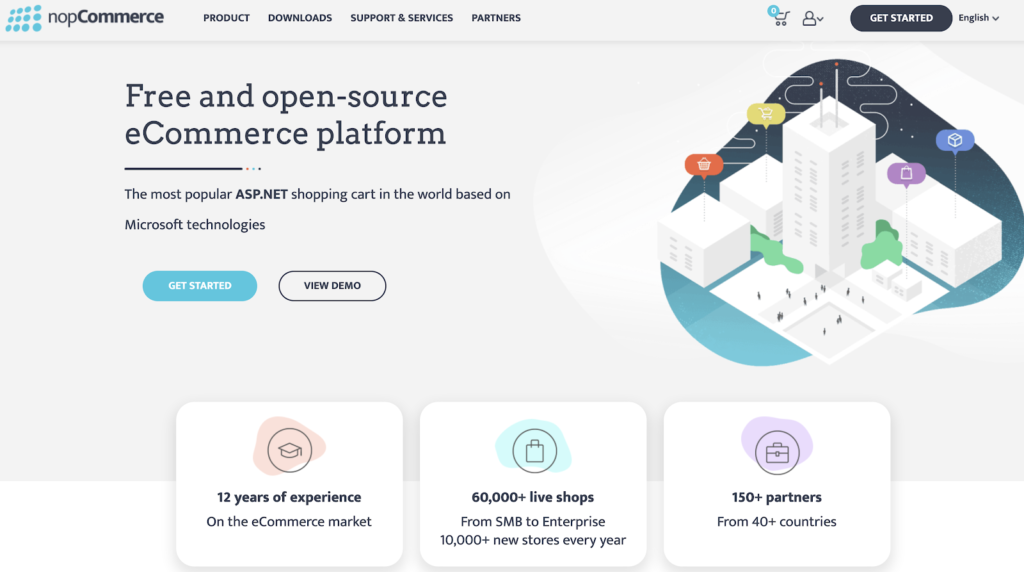
For those who are willing to shorten the time to market, nopCommerce supports a marketplace model where agencies can find hundreds of extensions and themes.
The platform Github’s repository has around 6,000 stars and growing, which gives it a top-10 position over Github eCommerce projects.
Dynamics365 with a neat storefront?
OK, it’s not a fully fledged eCommerce platform, but it might be an interesting combination. I mean, with the headless architecture, I can imagine an eCommerce run directly over integrated services with no central eCommerce platform at all. I don’t mean building it from scratch but rather taking the Vue Storefront Next as a unified front-end solution. It can be integrated with a PIM like Akeneo or Salsify, both support Azure, to get the product information. Then you can add CMS integration with platforms like Strapi, and contentStack. The prices can be taken from orders put into Microsoft Dynamics. The solution even offers a storefront by itself, or it can be easily integrated thru REST APIs.
Let’s start the discussion. What are your thoughts on Azure-based eCommerce?
Published March 2, 2021

